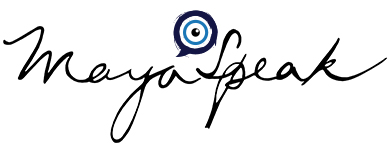The time-etched lines on Bhag Bahri Malhotra’s face are well earned. A little frail at 88, the matriarch of Delhi’s iconic bookstore, Bahrisons, looks nevertheless hale and hearty as she shares her life’s journey and the enormous influence she has had on the Khan Market bookstore that generations of book lovers are intimate with.

Both Punjabi immigrants of the Partition, Bhag and her husband Balraj Bahri Malhotra met at Delhi’s Kingsway Camp, where they worked as refugee volunteers. “We would look at each other, but we never spoke,” Bhag smiles in reminiscence of the early days of their courtship.
After Khan Market came up in 1951, Balraj was lucky enough to set up his bookstore there two years later. The couple lived in a Netaji Nagar accommodation that came with Bhag’s government job.

Educated like her mother, Bhag worked as a junior clerk for the Ministry of Relief and Rehabilitation. She not only shared her salary of `120 per month but also her time to finance her husband’s enterprise. Her time was spent between office, home and the bookstore, and the couple’s relationship was rich in love, trust and respect – so much so that Balraj addressed Bhag as ‘madamji’.
“Every day, after work at 10 pm, he would cycle all the way to India Gate and buy a string of jasmine flowers for my hair before coming home. I would wear the flowers all night – my hair always smelled of flowers and his love,” she says poignantly.

In 1968, Bhag gave up her government job and quarters, and the couple and their three children moved to Safdarjung Enclave. Though she belonged to a generation that did not empower its women with a voice or freedom of choice, her own mother – who worked as a teacher to support the family after the early death of her husband – was a strong role model.

“Women were kept in control earlier,” says Bhag. “They could not voice their opinions at all, they had to keep their heads covered with a dupatta, they were not allowed an education, and hence they lived in fear. Post-Partition, they were educated enough to be independent; they continued wearing a dupatta but it was no longer on their heads. They also realised that they could contribute financially to their families, and that a happy man is easier to live with.”
The Malhotra family now runs three bookstores successfully. “Women most definitely have to work, whether it is in the house or otherwise. If working outside, one can get rid of fatigue by complementing it with housework intermittently. I still do all my chores myself,” Bhag says with spirit.

Often to be seen browsing through books in the family stores, she began working at their Saket store full-time in 2016 after Balraj’s death. “I work only to suit myself. I don’t really need to report to anybody; it’s just so that my mind is kept busy and, besides, I do not want to just sit at home. I feel special as customers come and greet me; there is a coffee shop, it feels like home.” What is old age in the face of such resolution?
Before lockdown shuttered all their stores, Bhag would begin her work day with an easy morning “pottering around”, having tea, doing yoga, reading three newspapers, and having breakfast with her son.

She would leave for her bookstore after lunch, and spend her afternoon watching the business, chatting with customers, and catching up on her reading (she loves biographies, and Khushwant Singh is her favourite author “as he is Punjabi and writes well”).
Raring to work again post-lockdown, hers is the story of a woman who has lived life fully, taking pride in the world that she has created.
Previously published in eShe
Syndicated to MoneyControl



